News
Customize list
-

Can droplets reveal the pressure threshold of water-repellent surfaces?
Researchers from the Faculty of Mechanical Engineering at the University of Ljubljana developed a simple yet remarkably precise method that can determine, from a single drop of water, when superhydrophobic surfaces lose their water-repellent properties. This breakthrough will aid in the development of more durable water-repellent materials that can be used in industry, for example in cooling, self-cleaning, or corrosion protection.
-
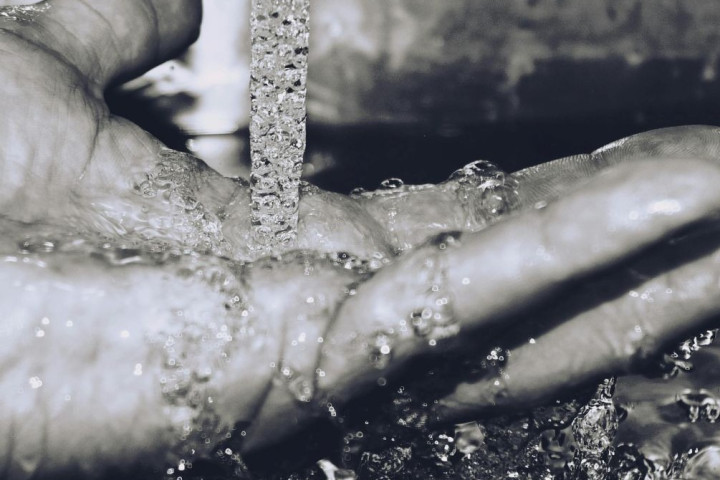
Microreactors of the Future for Efficient Wastewater Treatment Using Hydroxyl Radicals
The issue of wastewater treatment is becoming increasingly pressing in modern society, which is also reflected in the intensive research in this field. Conventional treatment methods are struggling to keep up with the growing diversity of pollutants that end up in various water bodies – both surface and groundwater. As a result, significant efforts are being invested in developing new technological approaches to address this challenge, with cavitation emerging as one of the promising technologies.
-

New Tools to Combat Deepfakes
In a world where trust in photos and videos is increasingly fragile, a significant breakthrough comes from the University of Ljubljana. Researchers from the Faculty of Computer and Information Science, in collaboration with experts from the Faculty of Electrical Engineering, have developed an advanced model capable of detecting digital forgeries with remarkable accuracy – even the most sophisticated ones created using state-of-the-art artificial intelligence techniques.
-
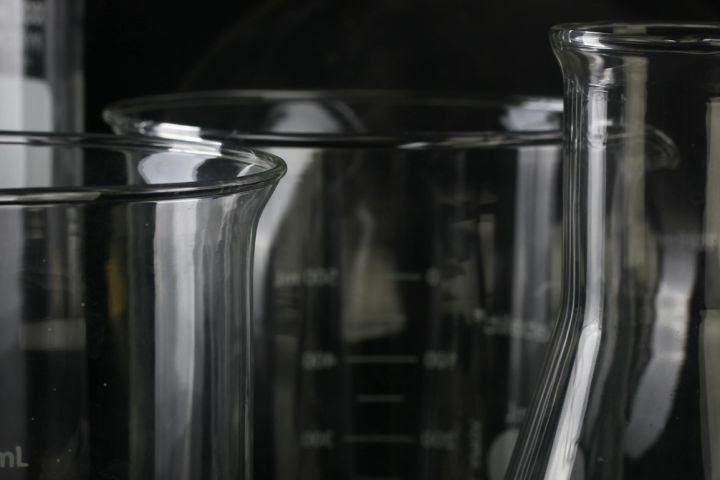
Dr. Liju Raju is a recipient of the MSCA 2024 Postdoctoral Fellowship at UL FKKT
Dr. Liju Raju, post-doctoral researcher at the University of Ljubljana, has been awarded the prestigious Marie Skłodowska-Curie Action (MSCA) postdoctoral fellowship for his project CHITOCAT. The research work will be conducted at the Faculty of Chemistry and Chemical Technology under the mentorship of Dr. Ross Jansen van Vuuren.
-
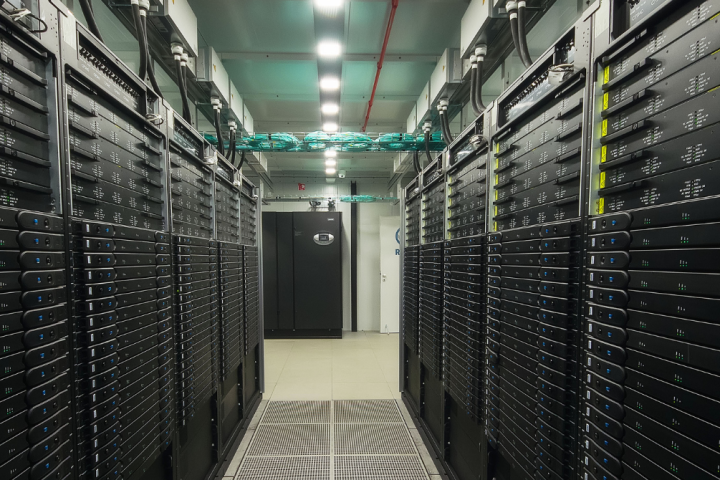
The University of Ljubljana will play a key role in establishing the Slovenian Artificial Intelligence Factory
Slovenia has secured European funding for the establishment of a new supercomputer and the Slovenian Artificial Intelligence Factory. The supercomputer will be tailored for building and utilizing artificial intelligence models, while the AI factory will help Slovenian experts create an ecosystem that provides key services for the development and application of artificial intelligence in one place for businesses, research organizations, and the public sector. The University of Ljubljana will play a significant role in this initiative.
-
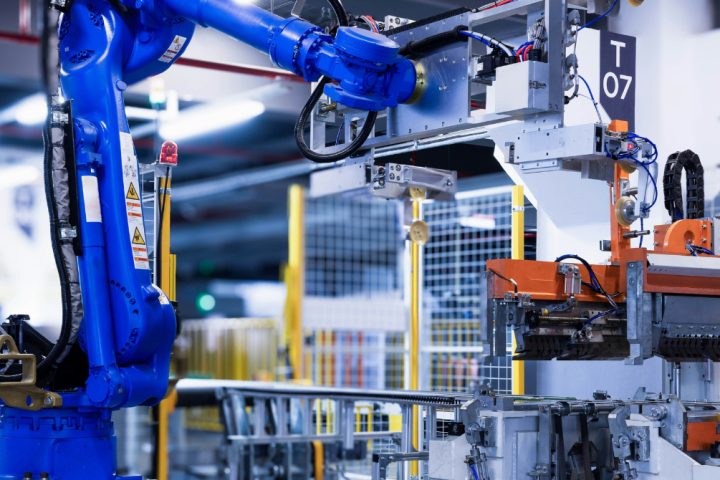
Revolution in manufacturing: Machine learning improves the precision of sheet metal stamping
Advancements in sheet metal stamping processes are creating new opportunities in industrial production. Researchers from the Faculty of Mechanical Engineering at the University of Ljubljana have developed an advanced method that uses machine learning to improve accuracy and reduce material waste.
-
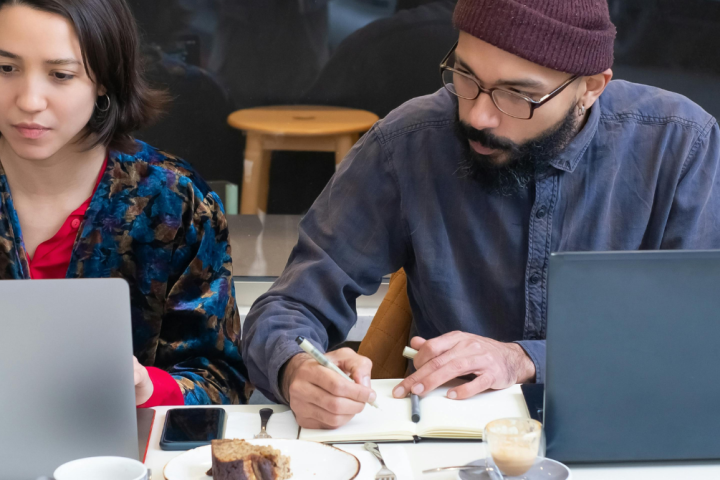
Digital Nomads Reveal the Future of Work: What Do Their Stories on Reddit Tell Us?
The way we work has changed significantly in recent years, and in the coming years, it will become even more digital, mobile, and tailored to individuals. Digital nomads play a crucial role in this transformation. What drives them to choose this lifestyle, how do they shape their careers, and in what ways do they build their networks? Answers to these questions are provided by a study, which included Professor Dr. Matej Černe from the School of Economics and Business at the University of Ljubljana, analyzing over 66,000 discussions on the Reddit forum Digital Nomad.
-

How nanoparticles for fuel cell applications continuously change
Proton exchange membrane fuel cells use hydrogen as a fuel and are one possible alternative to internal combustion engines that run on fossil fuels. The wider deployment of fuel cells, and thus the potential to reduce greenhouse gas emissions, is hampered by their cost. They require the expensive and scarce metal platinum to operate efficiently.
-

With Artificial Intelligence Towards Better Research in Digital Humanities
The Faculty of Computer and Information Science at the University of Ljubljana (UL FRI) has been successful in the Horizon Europe research and innovation program. It has secured €2.5 million for a five-year ERA Chair project – Artificial Intelligence for Digital Humanities (AI4DH). As part of the project, an interdisciplinary Centre of Excellence for Artificial Intelligence in Digital Humanities will be established.
-

Greentech: Hybrid Technologies for Factories of the Future and the Green Transition
A reduction of CO2 emissions by 17 million tons, energy savings of nearly 9 billion kWh, and a decrease in material consumption by approximately 800,000 tons over ten years. These are the expected outcomes of the groundbreaking Greentech program, which brings together 11 partners from academia and industry. The program is led by the Faculty of Mechanical Engineering at the University of Ljubljana.
-
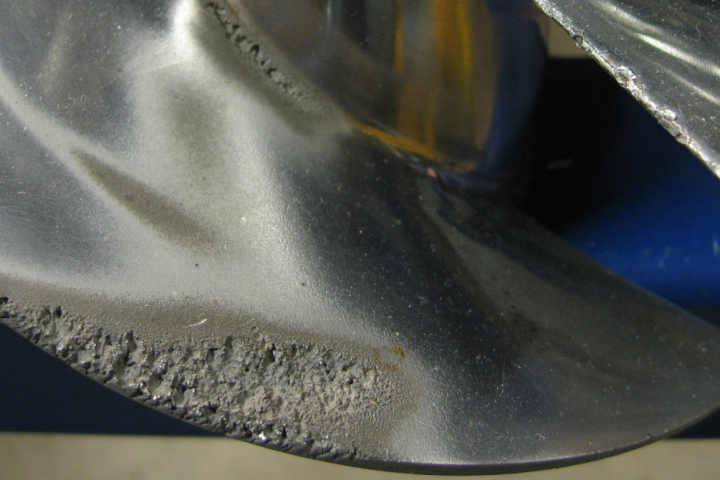
Questioning the standardized cavitation erosion test
Mechanical engineers often rely on standardized procedures when testing materials. Since the standardized cavitation erosion test ASTM G32 has repeatedly been shown to be inaccurate in the past, researchers at the Laboratory for Water and Turbine Machines (LVTS) at the Faculty of Mechanical Engineering, University of Ljubljana, have closely examined it and uncovered its shortcomings.
-
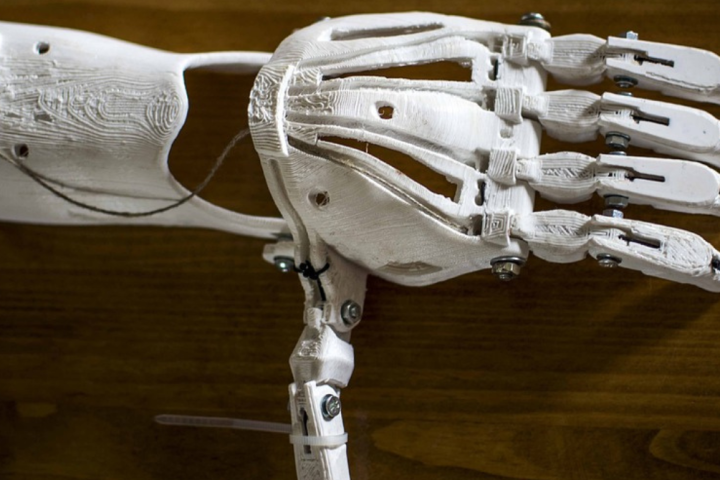
Comprehensive Overview of Plasma Electrolytic Polishing
Additive technologies are increasingly used for the production of metal components as they allow for efficient shape customization in a short time and with reduced material consumption. However, the lower surface quality of printed parts limits their direct industrial use. The growing demand for post-processing of metal parts produced by additive technologies highlights the potential of PeP technology as an environmentally friendly and efficient polishing method.
-

Developing sustainability communication is the key to a better future
Sustainability communication is becoming increasingly important in addressing pressing environmental and social issues. If done effectively, it can contribute to the faster adoption of sustainable practices and the improvement of public awareness. In doing so, it should not only focus on avoiding greenwashing but also on how to effectively engage stakeholders in complex sustainability challenges.
-
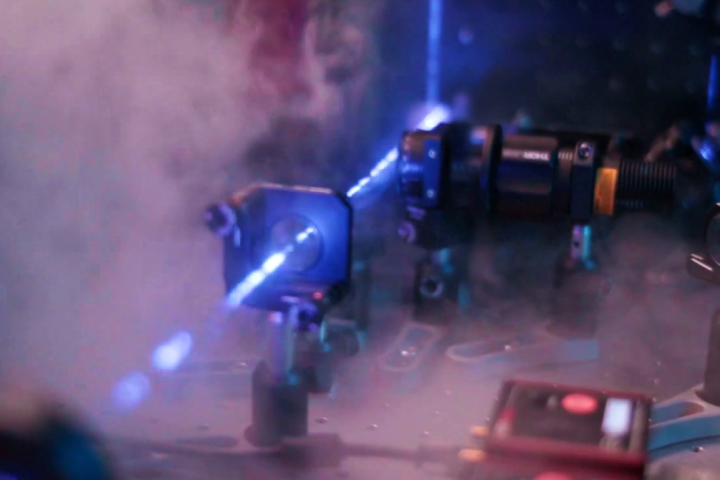
Liquid Crystals Represent a New Generation of Quantum Light Sources
Liquid crystals are present in our daily lives in our TVs and phone displays. On one hand, they possess the properties of liquids, but on the other hand, they exhibit molecular-level order similar to that found in crystals. This makes them extremely useful for manipulating light. Researchers Aljaž Kavčič and Dr. Matjaž Humar from the Jožef Stefan Institute and the Faculty of Mathematics and Physics at the University of Ljubljana, in collaboration with colleagues from the Jožef Stefan Institute and the Max Planck Institute for the Science of Light in Germany, were the first to demonstrate that liquid crystals can also be used to generate quantum light with numerous advantages over existing sources.
-
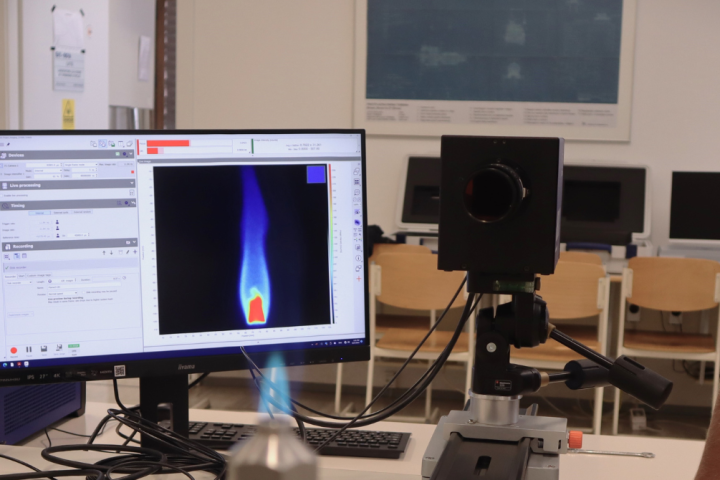
Faculty of Mechanical Engineering Successful in MSCA Doctoral Networks Call
The University of Ljubljana, Faculty of Mechanical Engineering, has been successful in the Horizon Europe Marie Skłodowska-Curie Actions (MSCA) Doctoral Networks call with the project UPCYCLE – Dissemination of Advanced Conversion Routes for Hard-to-Recycle Biogenic Waste. As part of the project, 15 doctoral candidates will be trained, three of whom will be based in Slovenia. The project is coordinated by Politecnico di Milano, with UL FS participating as a partner.
-
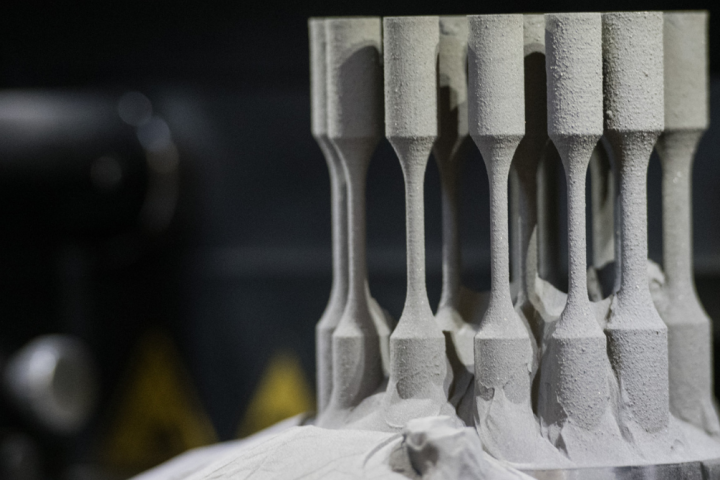
Artificial intelligence for predicting process condition variations in laser powder bed fusion of metals
Assistant professor Dominik Kozjek, a researcher in the Laboratory for Mechatronics, Production systems, and Automation (LAMPA) at the Faculty of Mechanical Engineering, UL, in cooperation with researchers from Northwestern University (Illinois, United States), the United States Army Research Laboratory, and the company DMG MORI Advanced Solutions, developed a new method of predicting meltpool temperature variations in the laser-powder bed fusion of metals (PBF-LB/M) process.
-
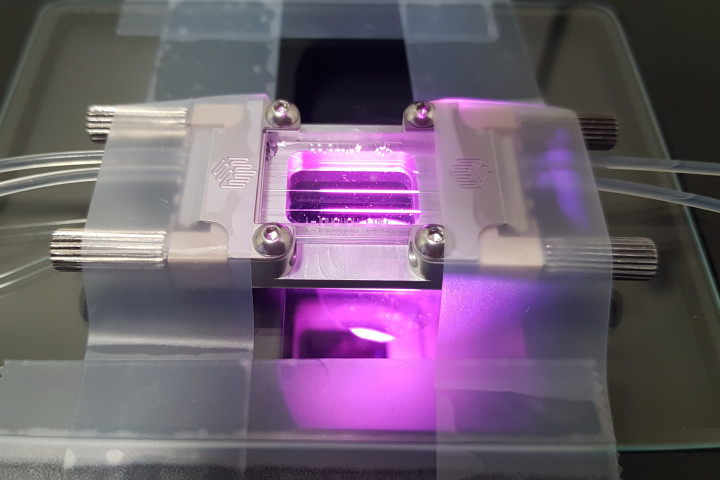
Researchers from the Faculty of Chemistry and Chemical Technology of the University of Ljubljana have obtained a Twinning project in the field of continuous (bio)catalytic processes
Under the leadership of Prof. Dr. Polona Žnidaršič Plazl, researchers from the Faculty of Chemistry and Chemical Technology of the University of Ljubljana (UL FKKT) have obtained a Twinning project titled "Twinning for Building Excellence and Innovative Solutions in Flow Catalysis" – FlowCat.
-
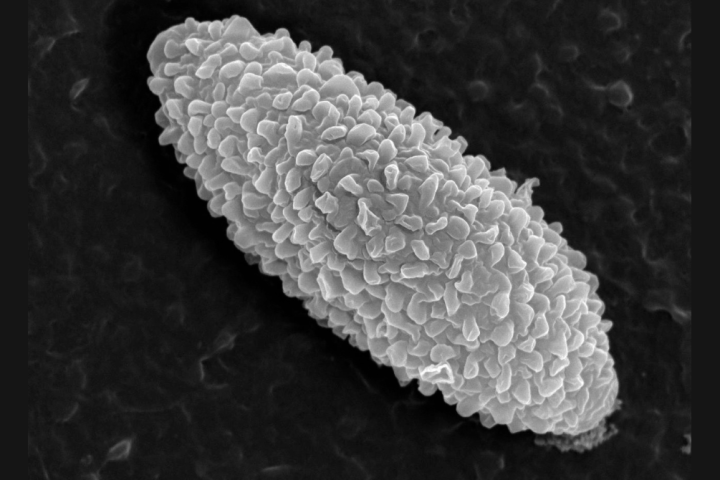
With a universal mechanism of cellular movement to new possibilities for treating cancer
Cell migration in the body is a fundamental biological phenomenon. Immune cells constantly search for pathogens throughout the body, while cancer cells migrate, causing metastases. To better understand the migration of immune and cancer cells, researchers, including Assoc. Prof. Dr. Samo Penič and Prof. Dr. Aleš Iglič from the Faculty of Electrical Engineering, University of Ljubljana, have developed a universal physical model of cell movement. This has also paved the way for new possibilities in the treatment of cancer.
-
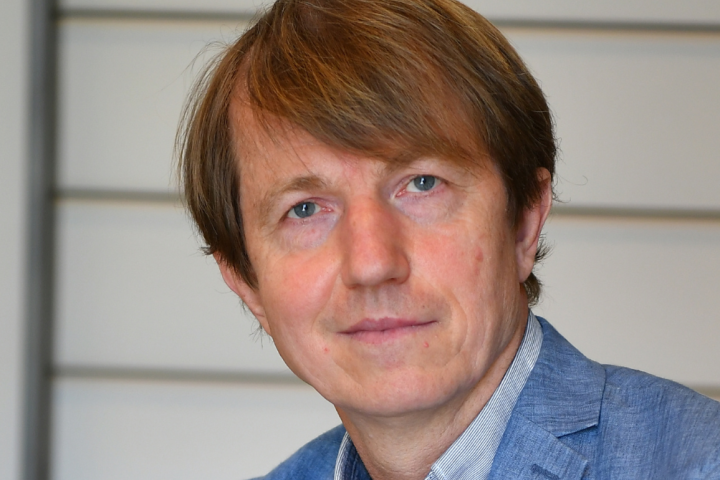
Important breakthrough in quantum physics by Prof. Dr. Tomaž Prosen and a Google Lab Team
Professor Tomaž Prosen, a mathematical physicist from the University of Ljubljana’s Faculty of Mathematics and Physics (UL FMF), has published, in collaboration with Google’s Quantum AI laboratory, an article entitled “Dynamics of magnetization at infinite temperature in a Heisenberg spin chain” in prestigious scientific journal Science. The article presents breakthrough findings in the theory of quantum transport phenomena.
-
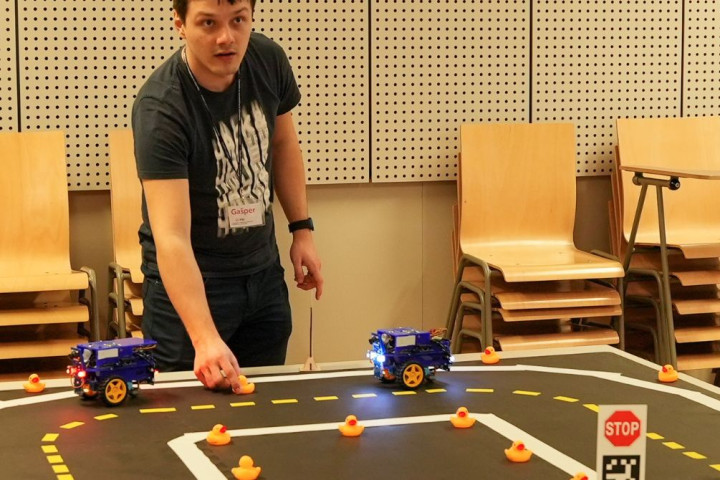
Duckiebots – autonomous driving robot cars in a small-scale city Model
Autonomous driving robots, equiped with camera and sensors have become reality. Meet Duckiebots, which are the result of the reasearch of doc. dr. Octavian Machidon from the Faculty of Computer and Information Science (FRI).
